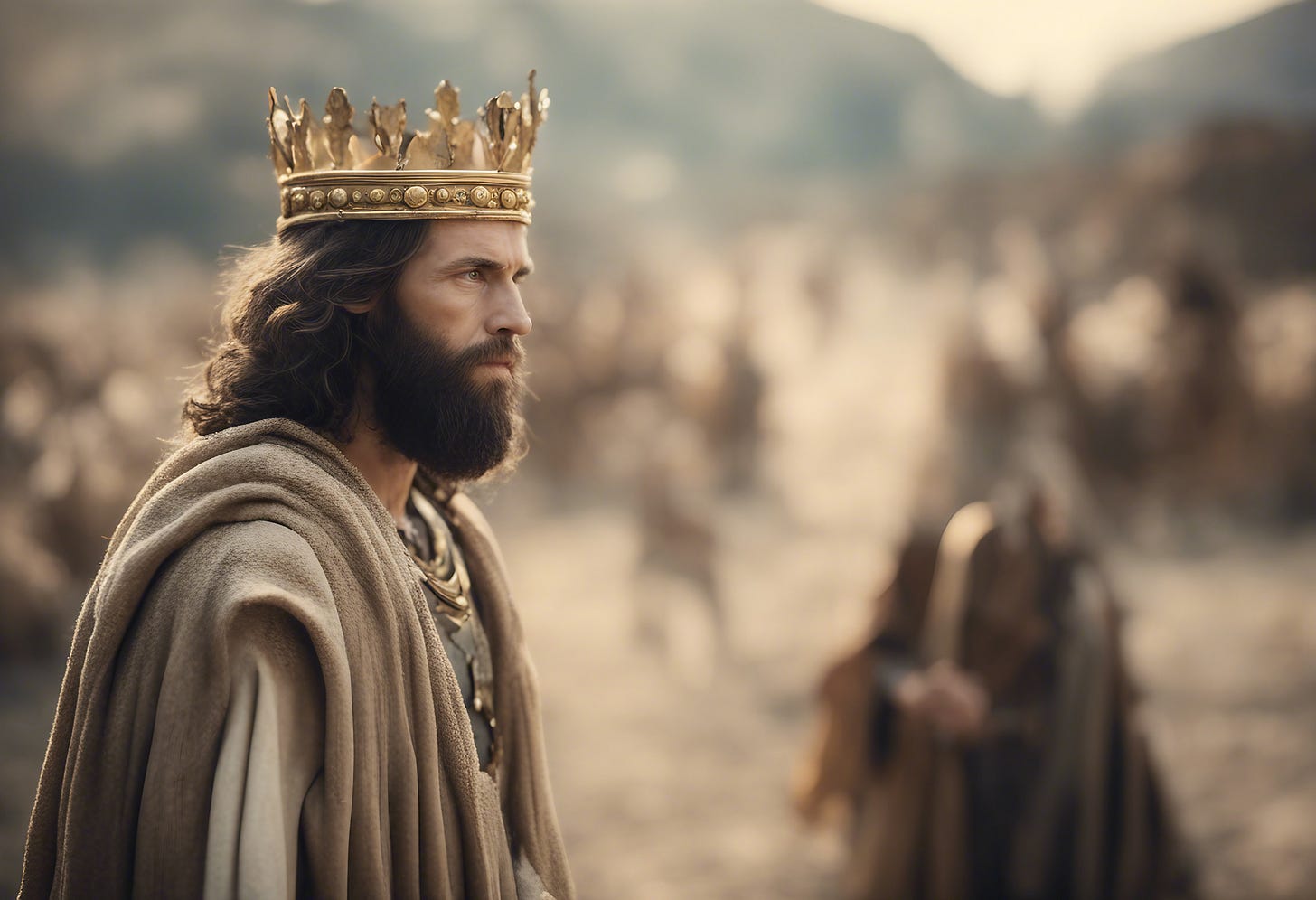Who Am I, O Lord? - The Covenant with David
God acts first, God promises first, God blesses first.
“The Lord declares to you: The Lord Himself will make a house for you.”
— 2 Samuel 7:11 (CSB)
David wanted to build a house for God. God wanted to build a house for David. And in that reversal lies one of Scripture’s clearest portraits of grace before obedience.
Grace Before Covenant
The story opens in 2 Samuel 7 with David at rest in his palace. The ark of the covenant had been brought to Jerusalem, Israel’s enemies had been subdued, and David’s heart overflowed with gratitude. In his zeal, he longed to do something great for God, to build Him a permanent dwelling.
But that night, the Lord gave a surprising response through the prophet Nathan.
“Are you to build a house for Me to live in? … I have not dwelt in a house from the day I brought the Israelites out of Egypt until this day.” (vv. 5–6)
Then God flipped the story entirely:
“The Lord Himself will make a house for you.” (v. 11)
Grace always reverses our assumptions. David wanted to give God something, but God insisted on giving to David instead. This is the divine pattern: God acts first, God promises first, God blesses first.
God’s Initiative
Before there was a covenant, there was a calling. Before there was duty, there was deliverance. God reminded David:
“I took you from the pasture, from tending the flock, to be ruler over My people Israel. I have been with you wherever you have gone, and I have destroyed all your enemies before you.” (vv. 8–9)
Every line is a reminder that David’s story didn’t begin in a throne room but in a sheep field. Every victory he’d experienced: every success, every breath, was the result of divine initiative, not human ambition.
The covenant with David begins, not with a demand for obedience, but with a rehearsal of grace. God’s “I have” statements far outnumber David’s “I will” intentions. That’s the gospel pattern again: God does for us what we could never do for Him. Grace always precedes the calling to obedience.
The Promise Beyond the Man
God’s covenant promise to David was staggering:
“Your house and kingdom will endure before Me forever, and your throne will be established forever.” (v. 16)
This was not a conditional blessing tied to David’s performance. Even when his descendants failed —and many did —God’s steadfast love remained. Psalm 89 echoes it:
“If his sons abandon My instruction … I will punish their rebellion, but I will not withdraw My faithful love or betray My faithfulness.” (vv. 30–33)
David’s covenant wasn’t about David’s perfection. It was about God’s faithfulness. Grace sustained the promise even when human obedience faltered.
That’s why this covenant finds its ultimate fulfillment in Jesus Christ, the Son of David and the eternal King. God’s promise didn’t depend on David’s righteousness; it depended on His own. Grace builds what obedience alone never could.
David’s Response: Humility and Worship
When David heard God’s words, his reaction was pure astonishment:
“Who am I, Lord God, and what is my house that You have brought me this far?” (v. 18)
Grace always produces humility. David didn’t boast in his achievements; he bowed before God’s mercy. His “Who am I?” mirrors the confession of every redeemed soul that knows it has received far more than it deserves. Grace silenced David’s pride and stirred his praise.
It’s the same effect grace should have on us — not arrogance, but awe.
Grace That Leads to Obedience
God’s promise to David didn’t exempt him from obedience — it empowered it. From that point on, every act of David’s life was meant to reflect gratitude, not self-earning. He didn’t serve to secure favor; he served because favor had already been secured.
The same is true for us. We don’t obey God to win His approval; we obey because we already stand in it. Grace doesn’t cancel holiness — it fuels it. As Paul wrote centuries later, “The grace of God instructs us to deny ungodliness and worldly lusts and to live in a sensible, righteous, and godly way.” (Titus 2:11-12)
The Covenant and the Cross
The promise made to David was finally fulfilled in Jesus, the eternal King who reigns forever. And the pattern hasn’t changed:
God made the promise before David could build a house.
God sent His Son before we could make ourselves righteous.
God loved us “while we were still sinners.” (Romans 5:8)
Deliverance still comes before discipleship.
Grace still acts before we can respond.
And the only fitting answer remains the same: “Who am I, O Lord?”
How often do you try to build something for God before resting in what He’s already built for you?
Grace gives.
Faith receives.
Obedience responds.





why can't the religious world see God's Grace through Faith. ....having been buried with Him in Baptism, in which you were also raised up with Him through faith in the working of God, who raised Him from the dead. Col. 2:12